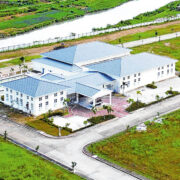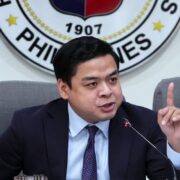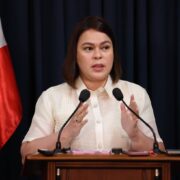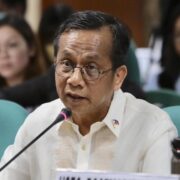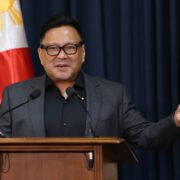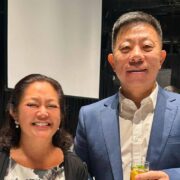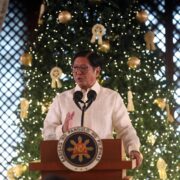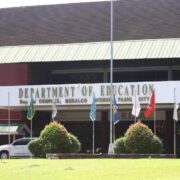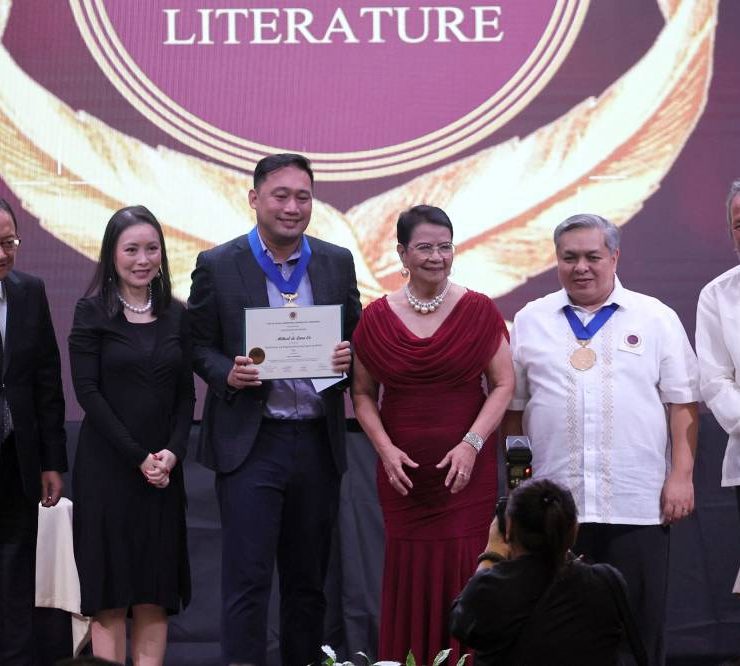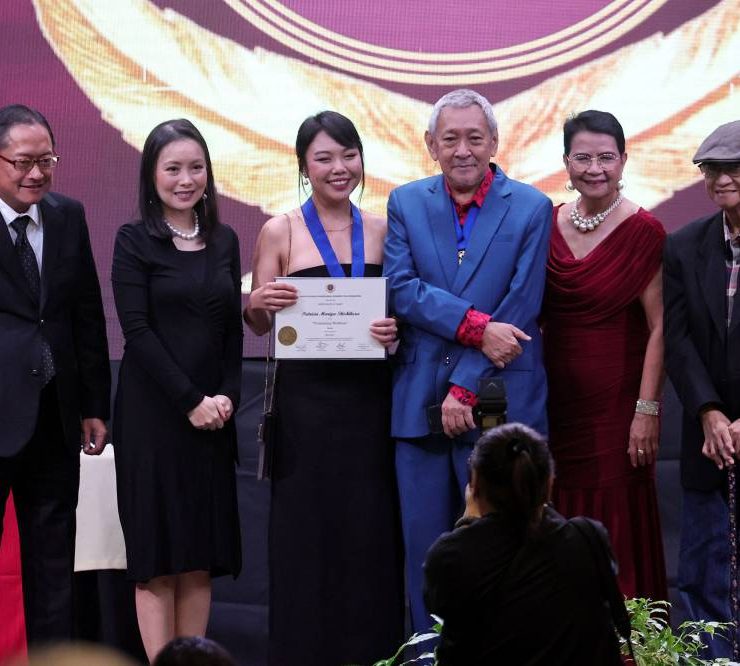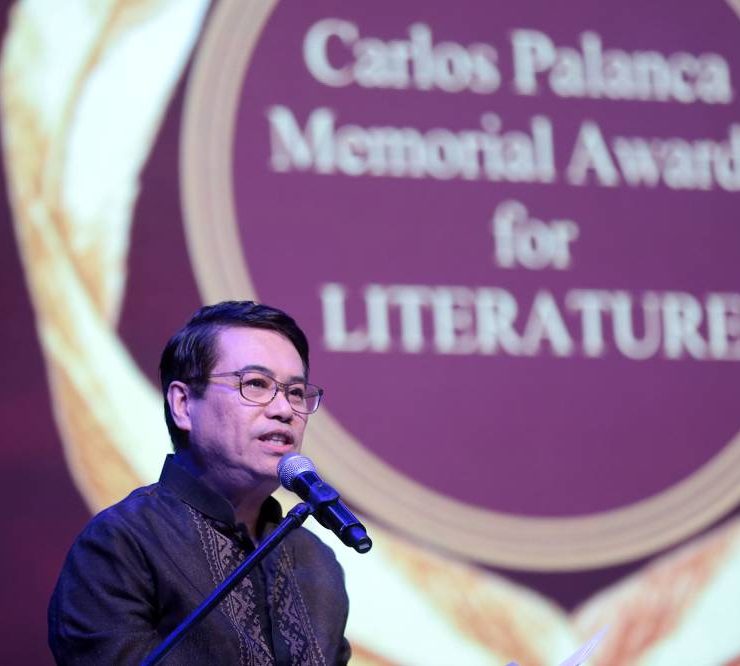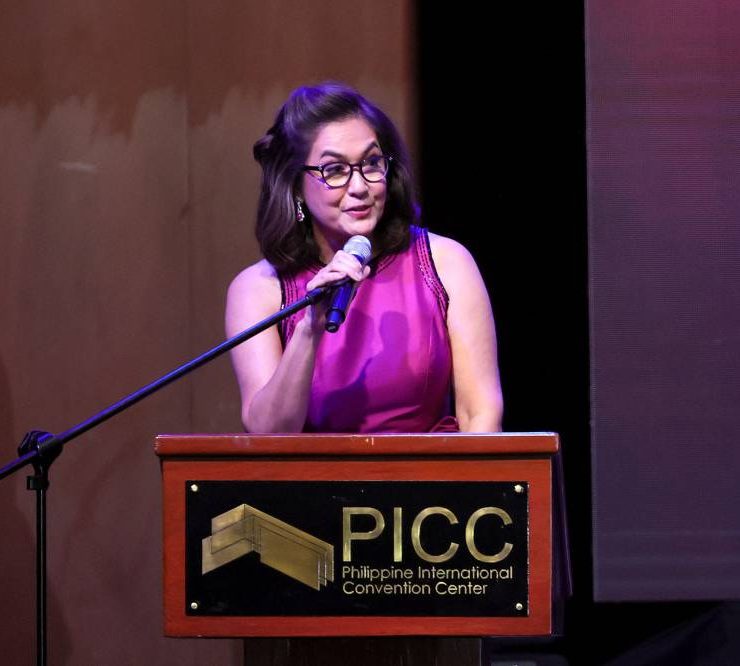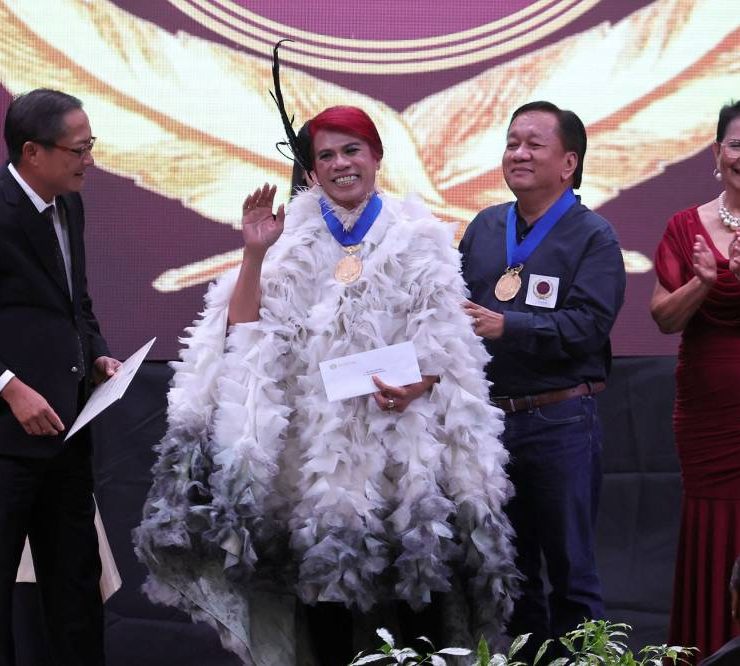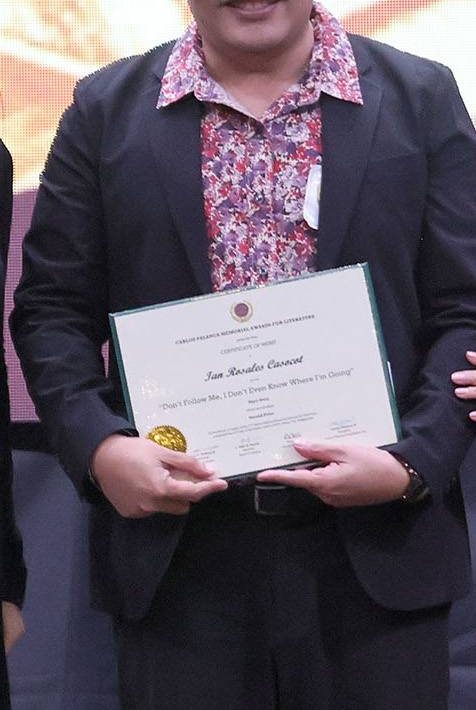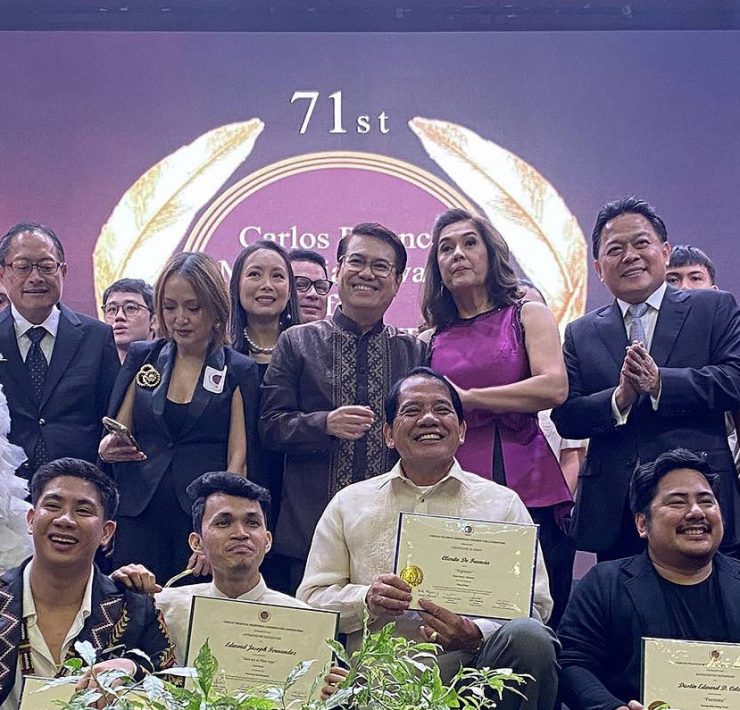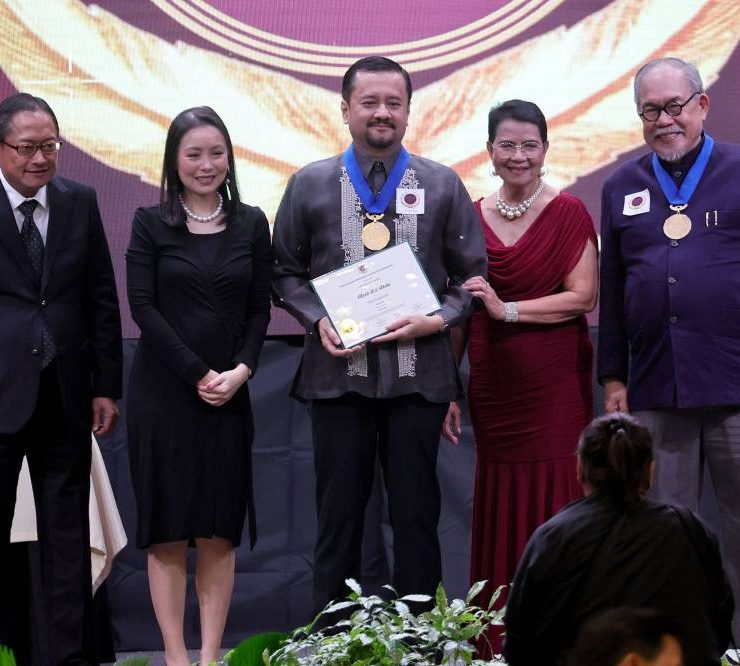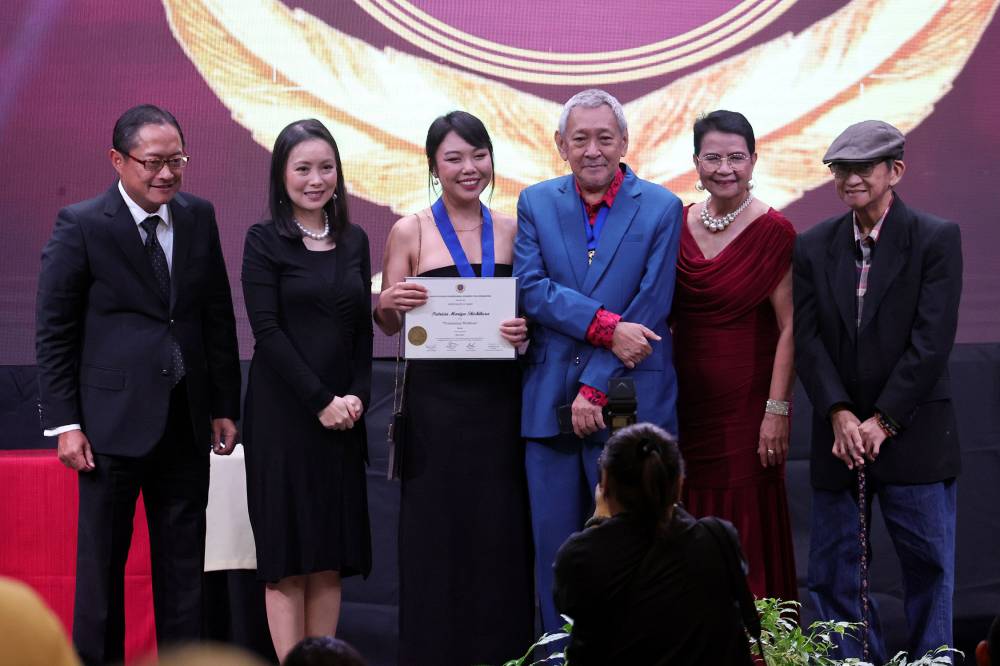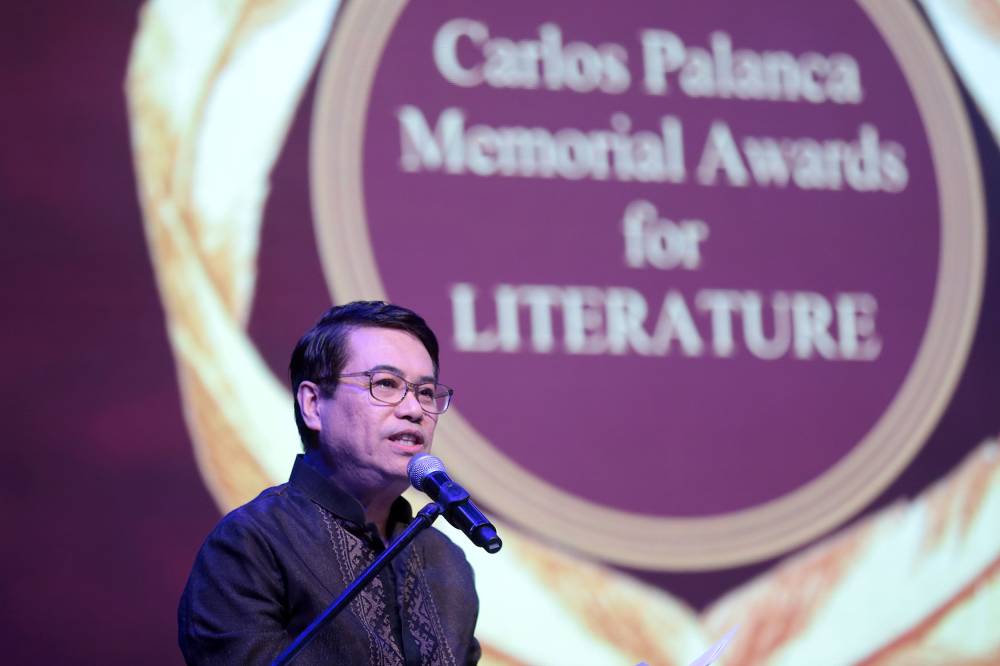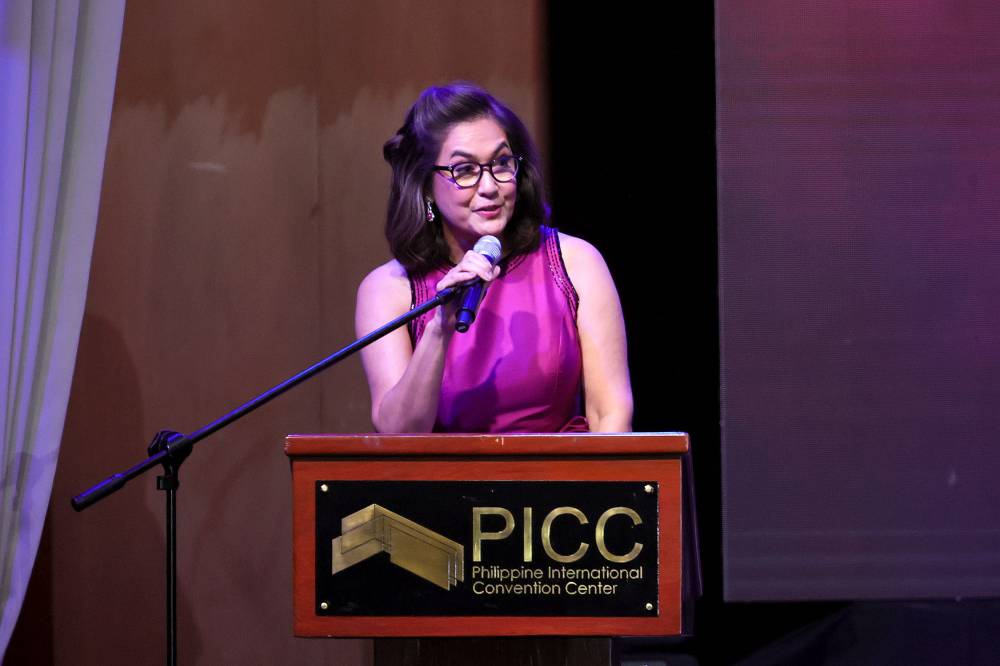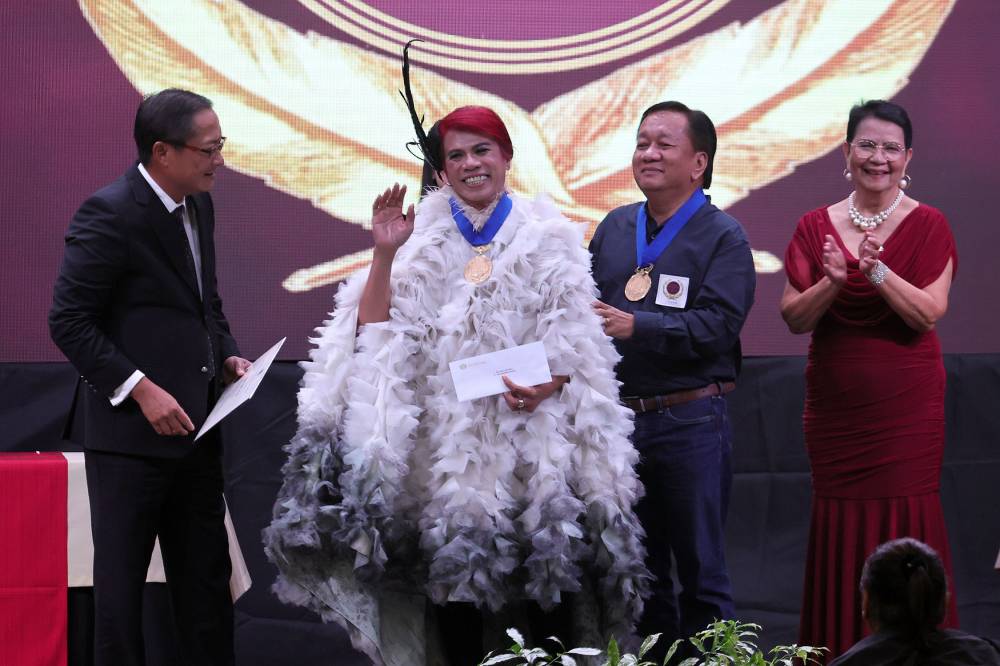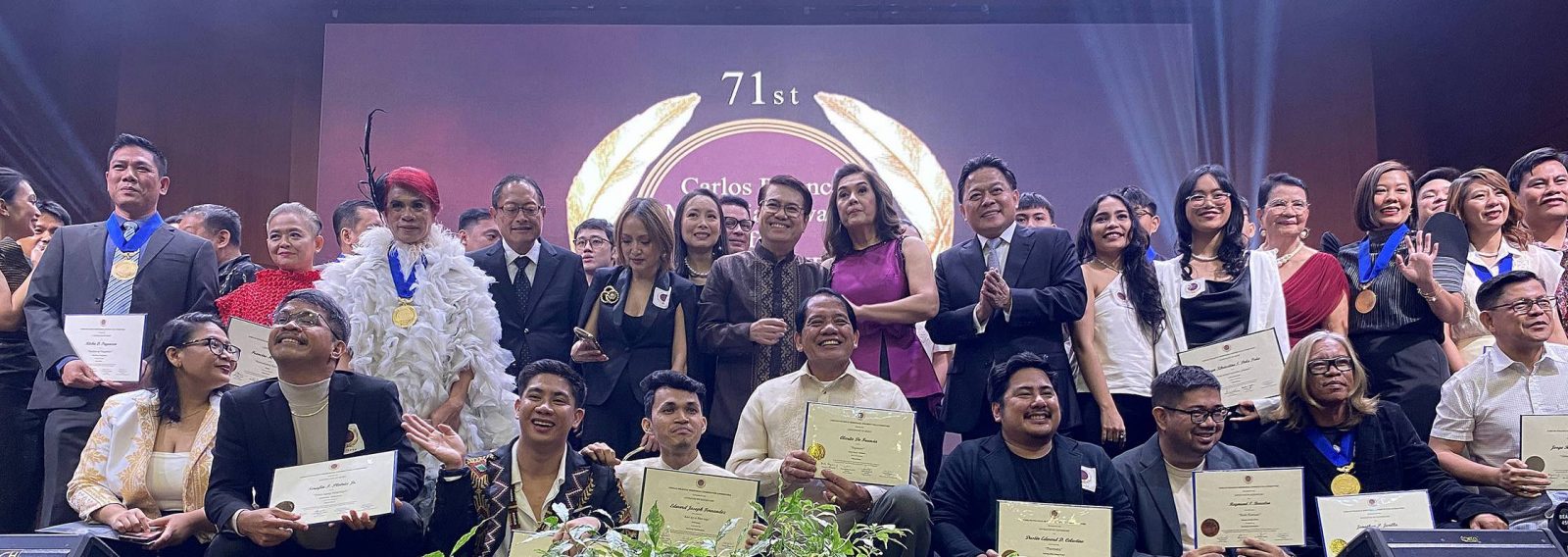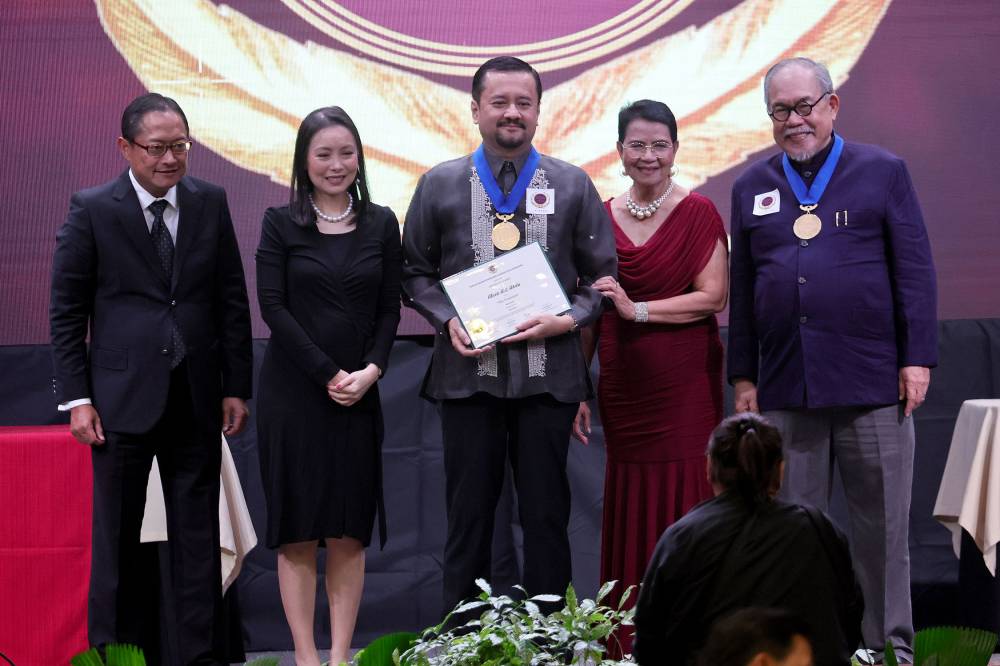Education and literacy: Goals at digital-era 71st Palanca Awards
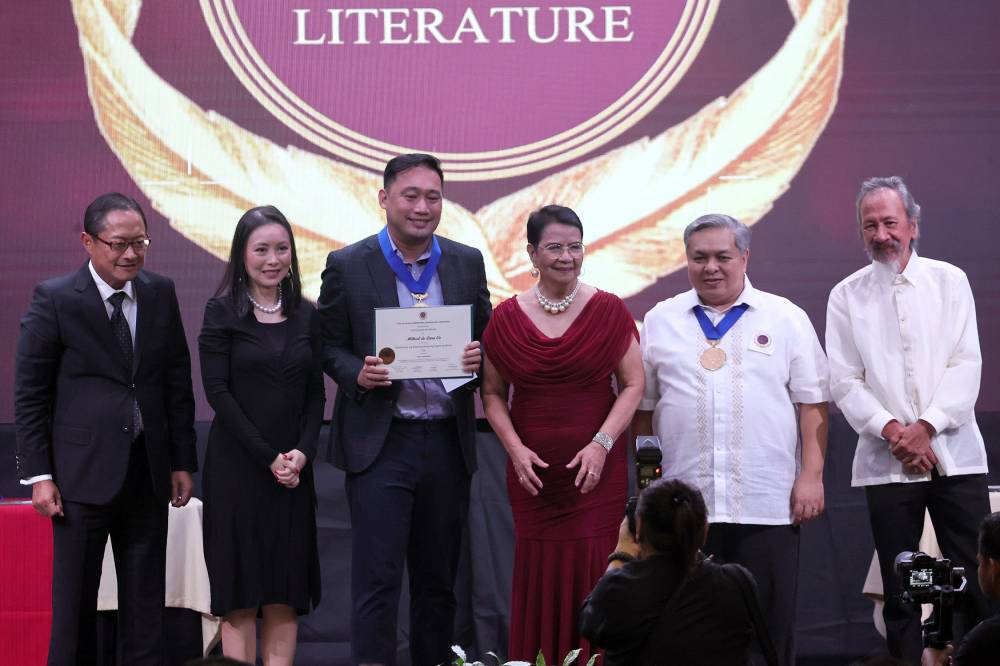
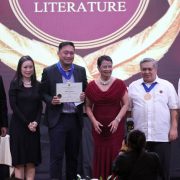
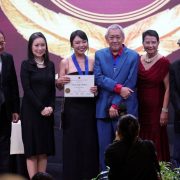
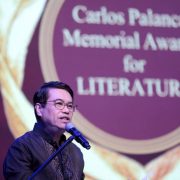
 +4
+4 Education and literacy: Goals at digital-era 71st Palanca Awards
71ST CARLOS PALANCA AWARDS / NOVEMBER 28, 2023 Mikael De Lara Co receives the Unang Gantimpala, Tula, Filipino Division for his work "Epistolaryo ng Bagamundo at ang Tugon mg Multo" during the 71st Carlos Palanca Memorial Awards for Literature at the Philippine International Convention Center (PICC) in Pasay City, Monday night, November 27, 2023. INQUIRER PHOTO / GRIG C. MONTEGRANDE
Education and literacy: Goals at digital-era 71st Palanca Awards
71ST CARLOS PALANCA AWARDS / NOVEMBER 28, 2023 Patricia Mariya Shishikura receives the award 1st Prize, Poetry, English Division for "Translating Wildfires" during the 71st Carlos Palanca Memorial Awards for Literature at the Philippine International Convention Center (PICC) in Pasay City, Monday night, November 27, 2023. INQUIRER PHOTO / GRIG C. MONTEGRANDE
Education and literacy: Goals at digital-era 71st Palanca Awards
Education and literacy: Goals at digital-era 71st Palanca Awards
71ST CARLOS PALANCA AWARDS / NOVEMBER 28, 2023 Criselda "Dang" Cecilio - Palanca delivers a speech during the 71st Carlos Palanca Memorial Awards for Literature at the Philippine International Convention Center (PICC) in Pasay City, Monday night, November 27, 2023. INQUIRER PHOTO / GRIG C. MONTEGRANDE
Education and literacy: Goals at digital-era 71st Palanca Awards
71ST CARLOS PALANCA AWARDS / NOVEMBER 28, 2023 Peter Solis receives the Unang Gantimpala, Maikling Kuwento, Filipino Division for his work " Ang Tariktik" during the 71st Carlos Palanca Memorial Awards for Literature at the Philippine International Convention Center (PICC) in Pasay City, Monday night, November 27, 2023. INQUIRER PHOTO / GRIG C. MONTEGRANDE
Education and literacy: Goals at digital-era 71st Palanca Awards
71ST CARLOS PALANCA AWARDS / NOVEMBER 28, 2023 Ian Rosales Casocot receives the 2nd Prize, Short Story, English Division for "Don't follow me, I don't even know where I'm going", 2nd Prize, Poetry Written for Children for "Bisaya For All The Gugma" and 2nd Prize One-Act Play, for The Midsummer Of Manuel Arguilla" during the 71st Carlos Palanca Memorial Awards for Literature at the Philippine International Convention Center (PICC) in Pasay City, Monday night, November 27, 2023. INQUIRER PHOTO / GRIG C. MONTEGRANDE
Education and literacy: Goals at digital-era 71st Palanca Awards
71ST CARLOS PALANCA AWARDS / NOVEMBER 28, 2023 The winners of the 71st Carlos Palanca Awards pose for a family photo during the 71st Carlos Palanca Memorial Awards for Literature at the Philippine International Convention Center (PICC) in Pasay City, Monday night, November 27, 2023. INQUIRER PHOTO / GRIG C. MONTEGRANDE
Education and literacy: Goals at digital-era 71st Palanca Awards
71ST CARLOS PALANCA AWARDS / NOVEMBER 28, 2023 Exie Abola receives the 1st Prize, Short Story, English Division for "Vile Creatures" during the 71st Carlos Palanca Memorial Awards for Literature at the Philippine International Convention Center (PICC) in Pasay City, Monday night, November 27, 2023. INQUIRER PHOTO / GRIG C. MONTEGRANDE
Entering its eighth decade, the Carlos Palanca Memorial Awards for Literature’s 71st cycle sits within the changing context of the digital era. The Nov. 27 celebration of the country’s most anticipated, and iconic, literary awards was held in the wake of ChatGPT’s AI debut, and the wars between Ukraine and Russia, and between Palestine and Israel. Against the backdrop of conflicts and disruptive technology, this year’s Palanca Awards underscored the importance of educating children in a world that demands more from its people than ever before.
The keynote address delivered by Gawad Dangal ng Lahi awardee and guest of honor and 2005 Hall of Fame awardee Dr. Luis P. Gatmaitan focused on education, a theme that has been visited by several keynote speakers at many Palanca nights in the past. Gatmaitan focused particularly on the education of children, underscoring how vital early childhood education and literacy are, and how literary works for children provide a fundamental structure that will enhance the language learning and love of reading among the country’s children and youths.
According to Gatmaitan, who delivered his speech in Filipino, “When we’re writing for 18 to 80 years old, we’re not thinking of adjusting our language to suit their age. But when we decide to write for children, the appropriate language and psychology for a particular age group is included. Included there are the suitable themes and topics.”
He added: “Along with this, we need to consider their reading level, which is why the word count is ‘make or break.’ Add to this their developmental milestones and issues suited to their ages. Age-appropriateness and development-appropriateness are important discussions when children make up the audience for our writing.”
In addition to being a physician, Gatmaitan writes children’s books, in which he takes on sensitive issues like disabilities, childhood ailments, and children’s rights. He is the chairperson of the National Council for Children’s Television that oversees the implementation of a child-friendly landscape in Philippine television.
The Gawad Dangal ng Lahi is a special citation conferred by the Palanca Awards on those who have contributed immensely to the development of Philippine literature.
Trust our writers
Criselda Cecilio-Palanca, in her sponsor’s speech delivered at the awards night held at the Philippine International Convention Center (PICC) in Pasay City, referred to the wars between Ukraine and Russia, and Palestine and Israel, saying that “there’s the greater challenge of employing language, hand-in-hand with imagination, to facilitate access to early accord and help resolve the seemingly countless disagreements that lead to global conflict.
“I believe that we can trust our writers to join the rest of the powerful voices across the world in introducing ideas, sentiments, insights on relationships, and rational measures to cut bias and prejudice down to size, indeed to minimal discomfort,” Cecilio-Palanca added. “This is the way we can savor our hours more agreeably, and enjoy recreation and contemplation by reading poems and stories, by appreciating literIature alongside other healing arts.”
Jose Y. Dalisay, chairman of the panel of judges for the short story category, gave his two centavos’ worth to the discourse on education and the use of language: “You have to read more, to gain a good sense of language and language mastery to write well. You must have life experience, and bring the abstract concepts in your head down into a concrete form, which is writing. Education, especially in the use of language, is vital to informing your voice as a writer.”
Cecilio-Palanca has taken over the duties once performed by Sylvia Palanca-Quirino, the Palanca Awards’ beloved matriarch, and she shared the statistics of this year’s Palanca cycle: “The total number of entries reached a historic high of 1,405. There were 20 categories, which involved 60 judges. There were 56 winning works, with 54 authors as the total number of winners.”
New voices
Plenty of new voices are taking their place in the roster of Palanca winners, according to her: “Thirty… were new winners, happily outnumbering the 24 former winners. In a particular stat line that we should hope to gain more parity in the future, 40 were male winners while female winners numbered 14.”
Of the total number of winners, five were aged 20 and younger, 15 were between 21 and 30 years old, 13 belonged to the 31-to-40 age group, 11 were aged between 41 and 50, nine were aged 51 to 60, and one winner was 65 years old.
“The youngest winners are both 13 years old, and they happen to be female twins—the same set of twins who won Palancas last year: Glorious Zavannah Exylin C. Alesna, who was awarded third prize for her Kabataan Sanaysay entry, “Sa Panahon ng Bagabag at Balisa: Paghagilap sa Pira-pirasong Retaso ng Hinahon at Pa(g)hinga,” and Glorious Zahara Exylin C. Alesna, who was awarded third prize for her Kabataan Essay titled “The Bully is You.” (Visit InquirePlus for the full list of winners.)Cecilio-Palanca said that the latest win-count for the Palanca Awards since 1951 is “a total of 2,526 winning authors, with 2,617 winning works.” She also said the total number of Hall of Famer winners who have won a first prize five times “remains at 26.”
Current and former contributors for the Philippine Daily Inquirer are also among the winners: John Patrick F. Solano took home the first prize bacon for Poetry Written for Children for his collection “Odd Numbers,” his second Palanca award. Ian Rosales Casocot bagged the most prizes this night in three different categories: second prize in the short story for “Don’t Follow Me, I Don’t Even Know Where I’m Going,” second prize in Poetry Written for Children for “Bisaya for all that we gugma,” and second prize for the one-act play, “The Midsummer of Manuel Arguilla.”
Named after businessman and philanthropist Don Carlos Palanca Sr. and sponsored by the Carlos Palanca Foundation Inc., the Palanca Awards is the longest-running and most prestigious literary competition in the country. It upholds the tradition of extending incentives for writers to continuously cultivate Philippine literature.
After this 71st Palanca Awards, perhaps the incentives could include not just the cultivation of Philippine literature in a general sense, but cultivation of a national body of literature that will help equip future generations of Filipino children to face a world full of new and unpredictable challenges.

